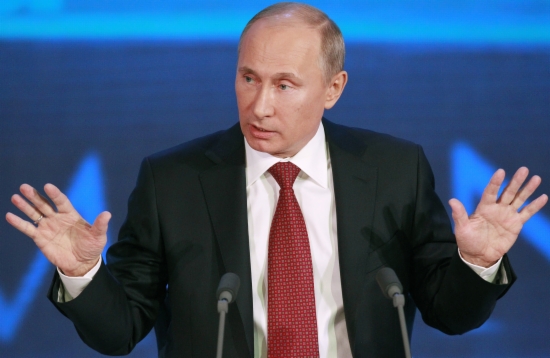12.08.2014 - 14:35
Russia’s ban on food and agricultural products and commodities from the European Union and the United States is predicted to cost Catalan producers 250 million euros. According to the Catalan Department of Agriculture, Russia’s embargo could amount to more than 110 euros in lost income. In Valencia, according to the Valencian Agriculture Association, losses could reach 140 million euros.
In Catalonia, the brunt of Russia’s food ban would be borne primarily by the meat sector, whose annual exports to Russia are worth 70 million euros, and by the fruit sector, with 40 million euros annually in exports to the country. These numbers, however, do not include exports to other EU countries through which they ultimately reach Russia.
Freezing the meat
The Catalan Minister of Agriculture, Josep Maria Pelegrí, has called on the EU to give the green light to private stockpiling, which would allow local meat producers to freeze the products they are presently unable to sell to Russia for a period of time ranging from three to five months. If authorized, this stockpiling would be accompanied by a series of economic aid measures from the Catalan government aimed at stimulating industry exports to alternative countries.
Pelegrí has emphasized the need to open up new markets in order to deal with the collapse of the sector following Russia’s ban. Russia, he recalled, is the primary export market for Catalan and European pork meat. Pelegrí predicted that Latin American countries would be the biggest beneficiaries of Russia’s ban on Western food products.
EU Compensation
In a meeting, the Catalan government and representatives of trade groups and unions from the meat industry agreed on the need for the European Union to act ‘immediately’ to stem the crisis caused by Moscow’s restrictions on food imports, and called for the activation of European compensation mechanisms.
Demands for Madrid
The road map announced by the Catalan government to deal with this setback also includes demands for the Spanish Ministry of Agriculture. As he has already done with regards to the local fruit industry, Pelegrí called for the Spanish ministry to meet with representatives of the Catalan meat industry, which accounts for 70% of the country’s total meat exports. Pelegrí labelled as ‘offensive’ the Spanish ministry’s recent assertion that Catalan meat exports to Russia are ‘not significant’.
The president of the Catalan Federation of Meat Industries, Jaume Blancafort, lamented the inability of autonomous communities, such as Catalonia, to conduct negotiations on the European level. Blancafort urged the Spanish government to defend the interests of the Catalan meat sector in Brussels.
More Demands
The Valencian Farmer Association issued its own demands targeted at Spanish and European authorities, calling for ‘urgent measures’ to spur food exports to alternative destinations. The president of the association, Cristóbal Aguado, insisted that administrations ‘should respond by helping producers, who are the ones who will again suffer the consequences of misguided geopolitical strategies’.
Madrid will ask the EU to cover losses
The Spanish Minister of Agriculture, Isabel García-Tejerina, said that in her appearance Thursday before the European Commission she will be demanding that surplus production generated by the closing of Russia’s markets to Spanish and EU products be taken off the market. García-Tejerina added that ‘this withdrawal must be financed by the crisis fund that was approved as part of the last Common Agricultural Policy reform’.
European member states will discuss at the expert level the impact of the ban in a meeting Thursday.
First Response from Europe
One of the first reactions to the ban to come from the European Commission is the announcement of exceptional aid measures for peach and nectarine producers. The percentage of production allowed to be taken off the market and destined to free distribution will rise from 5% to 10%, and there will be an increase in funds for the promotion of producer organizations. These measures are also meant to compensate the industry for its losses caused by recent adverse weather conditions.



